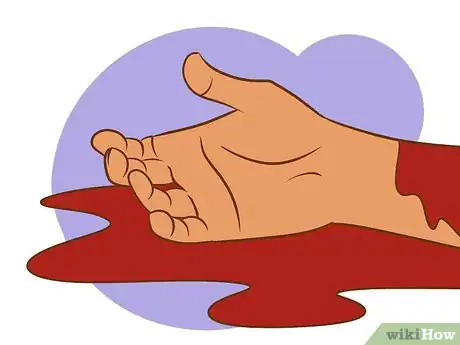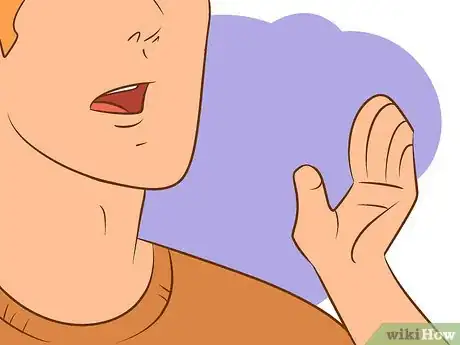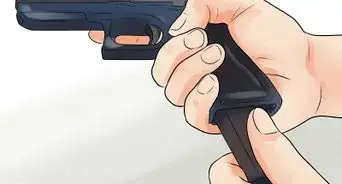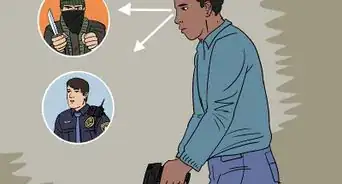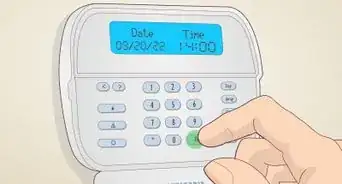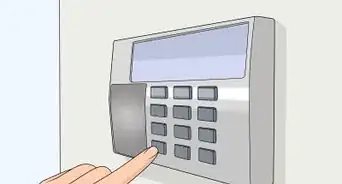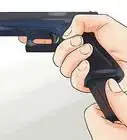wikiHow is a “wiki,” similar to Wikipedia, which means that many of our articles are co-written by multiple authors. To create this article, 29 people, some anonymous, worked to edit and improve it over time.
There are 8 references cited in this article, which can be found at the bottom of the page.
This article has been viewed 216,539 times.
Learn more...
If you're legitimately at risk of being harmed or killed, you have a right to defend yourself. If you're armed and hear an intruder in your home, or breaking in, don't give away your tactical advantage and position by yelling or firing a warning shot. Keep your finger off the trigger until you're ready to fire. Only fire on a target if you can positively confirm they are not a family member, police officer, etc... and that they are a threat. Don't fire if there is a chance of anyone being struck behind the target. If an armed assailant attempts to flee, let them go and try to get as much information on them as possible. The use of deadly force is always a last resort.
Steps
-
1Ensure that the area is clear from other intruders or threats.[1] When it is safe to do so, then:
-
2Contact emergency services, which is commonly 911, and ask for the police.[2] Explain to them that you've shot at an intruder out of fear for your life. Tell them that you have a gun.
- If it is safe to do so, check the condition of the intruder and report this all to the operator. How badly is he wounded? Where was he hit? Is he dead or just wounded?
Advertisement -
3Only when you're sure you are alone and safe unload the weapon and put the gun away in a secure place. Do not clean, wipe down or service the weapon. The officers that respond to your call may want to retrieve the weapon for evidence. The worst thing you can do is approach the police holding a gun. When the police arrive, follow their exact instructions. They will first try to determine if there is still a threat and they will attempt to neutralize it. They may ask you to surrender, lay on the ground or handcuff you as a precaution. Just follow their directions and do what they say. Tell them you you fired your gun out of fear for your life. Do NOT provide any additional details, just say "I shot out of fear for my life." Once you calm down and tell the story to your attorney, then and ONLY then do you want to give the police details.
-
4If requested to do so by the police, avoid the areas of the house that may contain evidence to allow the police to get a clear picture of what happened and how the intruder got into your house.[3] (disturbing them may destroy/contaminate the evidence)
-
5You may be arrested as a precaution. Do not be alarmed or surprised if you are. Speak to an attorney before speaking to the police.[4]
Community Q&A
-
QuestionIs it true that if I have my CHL, I can only fire once?
 Community AnswerNo, that's ridiculous. Shoot until the intruder is down and/or completely incapacitated. You are perfectly within your rights.
Community AnswerNo, that's ridiculous. Shoot until the intruder is down and/or completely incapacitated. You are perfectly within your rights. -
QuestionIf I were in this situation, would I need to contact 911 and keep the line open prior to taking action?
 Community AnswerSometimes there isn't enough time to call 911 in a situation with an intruder in your home. If you feel that your life is in danger, you should fire at the shooter.
Community AnswerSometimes there isn't enough time to call 911 in a situation with an intruder in your home. If you feel that your life is in danger, you should fire at the shooter. -
QuestionWhy would the police arrest you even if you shot out of fear?
 Community AnswerPrecaution. They don't know if you are actually the homeowner or the intruder, or the details of the situation. Once everything gets cleared up and processed, you should be fine.
Community AnswerPrecaution. They don't know if you are actually the homeowner or the intruder, or the details of the situation. Once everything gets cleared up and processed, you should be fine.
Warnings
- Some states have passed "Castle Doctrine Laws" that allow you to protect your home and family with deadly force. In this doctrine, some states have a “duty-to-retreat”, which imposes an obligation upon the home's occupants to retreat as far as possible and verbally announce their intent to use deadly force, before they can be legally justified in doing so to defend themselves. Other states have a “stand-your-ground” provision, which relieves the home's occupants of any duty to retreat or announce their intent to use deadly force before they can be legally justified in doing so to defend themselves. In states where Castle Law is included as a part of a larger personal-self-defense law, there may be a duty to retreat if the altercation happens in a place outside the home, even though there is no duty to retreat if the altercation happens at the home. Currently, states having weak or no "Castle Law" are Idaho, New York, Pennsylvania, South Dakota, Iowa, Nebraska, New Hampshire, New Mexico, Virginia, Vermont, and The District of Columbia. However, the laws vary from state to state so make sure you know the laws that apply to you.⧼thumbs_response⧽
- You still can get in trouble, even if you were defending yourself, if the intruder was killed outside of the house. Once he leaves your house, then, according to law, he is no longer harming anyone, and it is then you who are responsible for his death (if he dies).⧼thumbs_response⧽
References
- ↑ https://www.safewise.com/blog/what-to-do-when-an-intruder-is-in-your-home/
- ↑ https://www.911.gov/needtocallortext911.html
- ↑ https://www.usconcealedcarry.com/blog/first-48-hours-self-defense-shooting/
- ↑ https://criminal.findlaw.com/criminal-charges/may-i-shoot-an-intruder.html
- ↑ https://www.artofmanliness.com/articles/the-best-guns-for-home-defense/
- https://www.nrafamily.org/articles/2019/5/28/after-a-defensive-shooting-what-to-do/
- https://www.military.com/military-fitness/general-fitness/5-tactical-tips-to-survive-a-home-invasion
- https://www.safety.com/how-to-deal-with-an-intruder-in-your-home/


